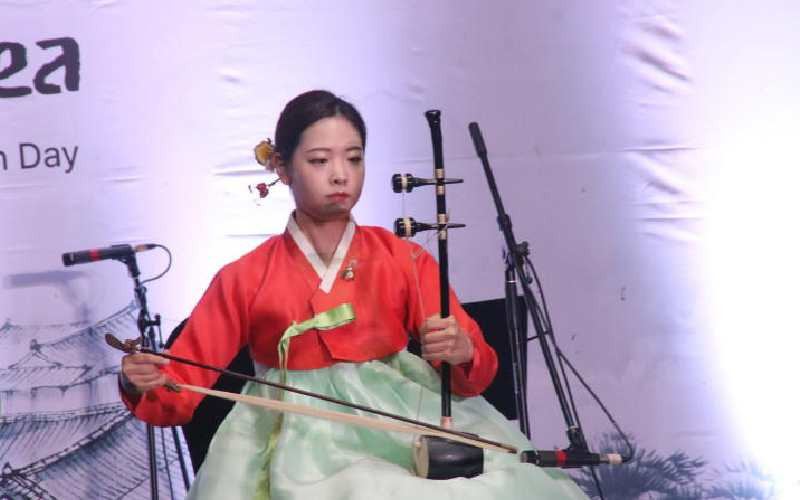×
The Standard e-Paper
Smart Minds Choose Us

Korean instrumental music player Sumin Kim plays the Haegeum instrument during the Korean Music and dance performance at Safari park hotel on October 11, 2022 [David Gichuru, Standard]
Africans are often in disbelief and take offence when a person from another continent does not seem to understand that Africa is a continent, not a country.